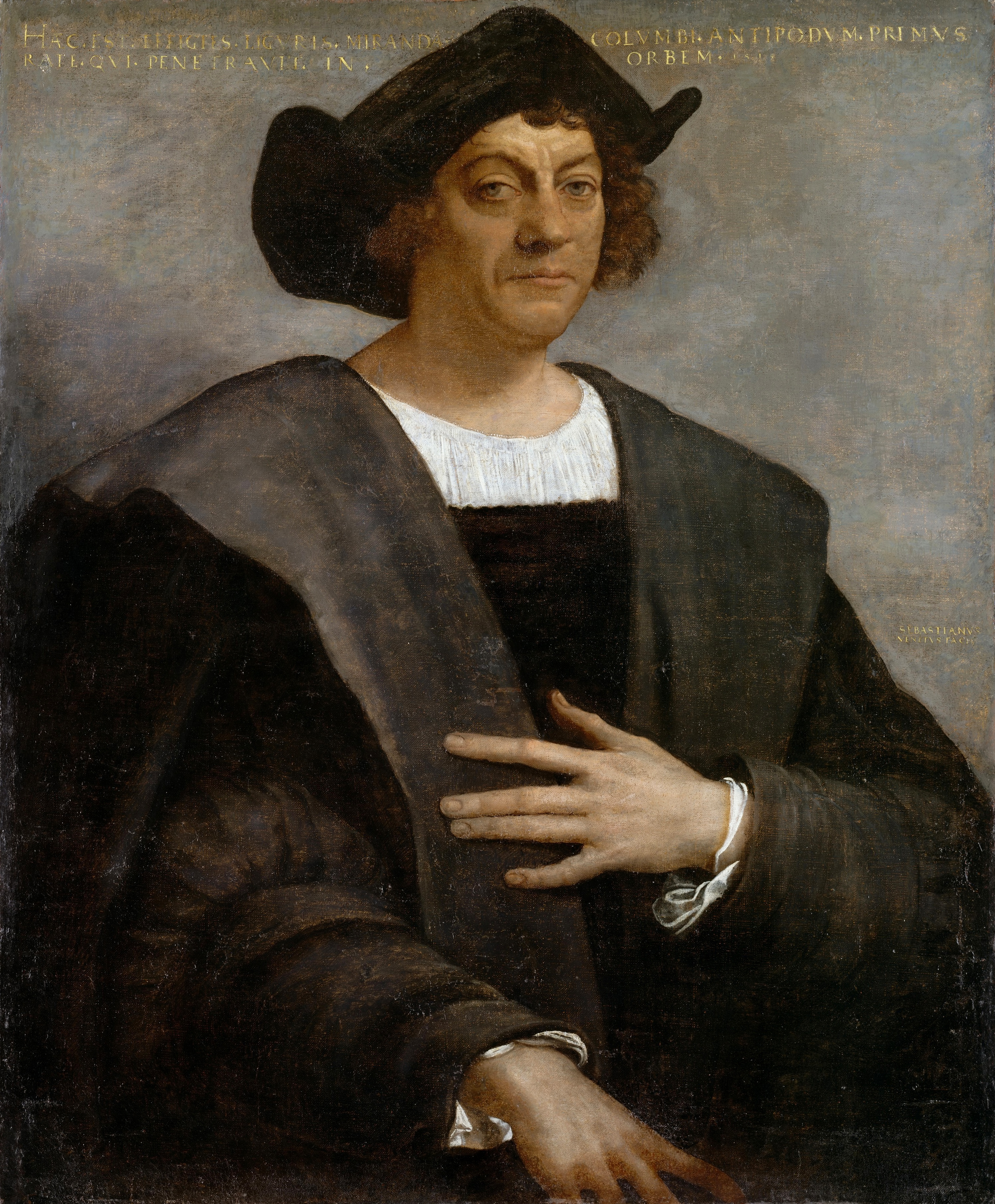Frases célebres de Cristóbal Colón
Previendo una colonización religiosa.
Jubiloso grito que rompió su silencio el vigía la noche del 12 de octubre de 1492.
Citas relacionadas
“A trescientas setenta leguas de las islas del Cabo Verde, hacia la parte del poniente.”
En relación al tratado en virtud del cual se establecía un reparto de las zonas de conquista y anexión del Nuevo Mundo mediante una línea divisoria del Océano Atlántico entre España y Portugal.
“Muy bien hechos, de muy fermosos cuerpos y muy buenas caras.”
Palabras recogidas en su Diario respecto de los nativos de las Bahamas.
Frases de gente de Cristóbal Colón
“Creo que debe ser Çipango, Japón según las señas que dan esta gente.”
Palabras recogidas en su diario respecto a Cuba.
“La gente ya no lo podía çufrir: quexávase del largo viaje.”
Fuente: Diario de Colón [//es.wikisource.org/wiki/Diario_de_Cristobal_Col%C3%B3n_del_d%C3%ADa_12_de_Octubre_de_1492].
Cristóbal Colón: Frases en inglés
Letter to the Sovereigns (1503)
22 December 1492
Journal of the First Voyage
Letter to Doña Juana de Torres (October 2015)
“When there are such lands there should be profitable things without number.”
27 November 1492
Journal of the First Voyage
12 October 1492; This entire passage is directly quoted from Columbus in the summary by Bartolomé de Las Casas
Journal of the First Voyage
3 August 1492 diary entry http://www.fordham.edu/halsall/source/columbus1.html
Journal of the First Voyage
"Concerning the Islands Recently Discovered in the Indian Sea" (14 March 1493)
15 March 1493
Journal of the First Voyage
10 October 1492
Variant translation: Here the people could stand it no longer and complained of the long voyage; but the Admiral cheered them as best he could, holding out good hope of the advantages they would have. He added that it was useless to complain, he had come [to go] to the Indies, and so had to continue it until he found them, with the help of Our Lord.
As translated in Journals and Other Documents on the Life and Voyages of Christopher Columbus (1963) by Samuel Eliot Morison, p. 62
Journal of the First Voyage
Actually by André Gide.
Misattributed
11 October 1492
Journal of the First Voyage
25 December 1492
Journal of the First Voyage
8 October 1492
Journal of the First Voyage
Letter to the Sovereigns (1503)
Variant translation: At two hours after midnight appeared the land, at a distance of two leagues. They handed all sails and set the treo, which is the mainsail without bonnets, and lay-to waiting for daylight Friday, when they arrived at an island of the Bahamas that was called in the Indians' tongue Guanahani.
As translated in Journals and Other Documents on the Life and Voyages of Christopher Columbus (1963) by Samuel Eliot Morison, p. 64
Journal of the First Voyage
16 December 1492
Journal of the First Voyage
27 November 1492
Journal of the First Voyage
28 October 1492
Journal of the First Voyage
Letter to the Sovereigns (1498)
Letter to the Sovereigns (1493)
Letter to the Sovereigns (1503)
14 October 1492
Journal of the First Voyage
On smoking, 6 November 1492
Journal of the First Voyage
Letter to the Sovereigns (1493)
13 October 1492
Journal of the First Voyage
